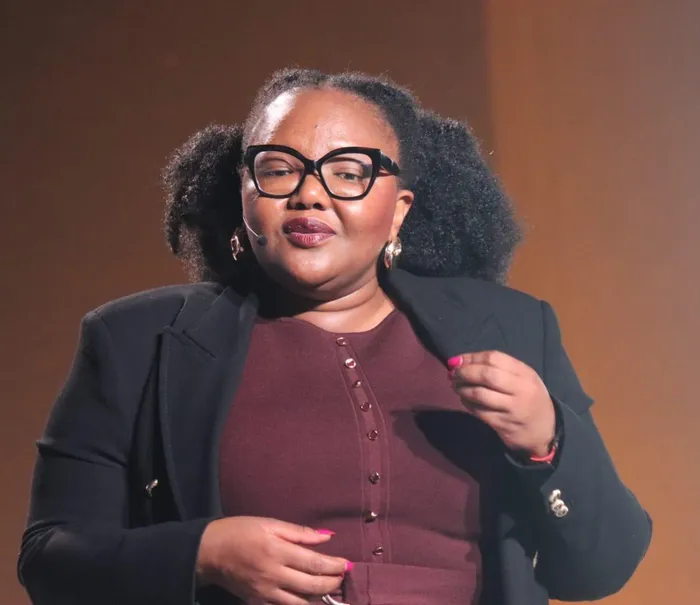How mathematics education deficiencies threaten South Africa’s economic future

Basic Education Minister Siviwe Gwarube.
Image: File
At least 50% of South Africa’s matric pupils need to pass Grade 12 with pure mathematics to provide relevant skills to boost the economy, according to experts.
This is largely because economic growth is now happening in the tertiary sector, which requires specialised skills, especially mathematics.
However, the Department of Basic Education recently revealed that 464 schools do not offer mathematics as a subject in the country, due to resource constraints and teacher shortages.
The most affected province is KwaZulu-Natal with 135 schools. The Eastern Cape has 84 schools, Limpopo has 78 schools, the Western Cape has 61 schools, the North West has 31 schools, Gauteng has 31 schools, the Northern Cape has 19 schools, the Free State has 14 schools, and Mpumalanga has 11 schools.
Over the years, the department has experienced budget cuts.
Experts argue that South Africa needs to improve its Basic Education if it wants to grow skills that will enable the country to compete globally.
Dawie Roodt, chief economist at Efficient Group, said current economic activities are based in the service industry, which is driven by skills and new technology that require mathematics.
“Big companies such as Meta, Google, Tesla, and Microsoft are based on new technology. And they are currently employing mostly programmers and experts in artificial intelligence (AI). If you want to be a programmer or an expert in artificial intelligence, there is one requirement: you must be good at mathematics,” Roodt stated.
He added that in the South African economy as well, growth happens in the tertiary sector. However, in primary industries such as agriculture, it happens to a much lesser extent. Agriculture is now also becoming a service industry.
Highlighting how sectors were switching to new technology, he said cars now are fixed by guys who plug in a computer to analyse the problem, and that is based on mathematics.
Even a language model on ChatGPT is based on an algorithm, which uses mathematics, he said.
“You need a heavy dose of mathematics in all economic activities in order to grow the economy in a way that modern economies are supposed to. If you don’t have good mathematics experts in your economy, it is just not going to perform well,” Roodt said.
What are the prospects for pupils who are not learning mathematics as a subject?
Roodt said not all is lost for these pupils. All they have to do is learn to be good at using technology (AI tools) in whatever field they are in, because this, while effective, does not require one to be good at mathematics.
“But you must have somebody else who knows mathematics to write the application for you to use the technology,” he added.
Everyone, including those who excel in mathematics, has to stay on top of whatever the newest, most recent developments are, he said.
“You have to keep on sharpening up your skills. So, don’t think for one single moment that you are going to learn something, get a qualification, and then stop learning. You have to learn for the rest of your life. And it doesn’t end in all careers,” Rood said.
He clarified that this does not mean that everybody must be a mathematician.
“If I had the power, as a minister of Basic Education, I would put all sorts of incentives in place to encourage teachers to improve their skills development. And then start paying those with better skills and better outcomes more than those without the necessary skills and the necessary outcomes. Then, I would start working out those teachers who are not doing their jobs.
“Teaching is a calling and is crucial for any economy. Many good teachers in South Africa are doing an excellent job. Unfortunately, that is not most of them,” Roodt said.
He added that there are two things that one needs to teach a child. One is mathematics, and the other is a love for reading. And when a child loves reading and does read, they will be able to learn all other things on their own.
Professor William Gumede from the Wits School of Governance said the government must improve the basic education system to avoid setting up learners for failure.
“All countries whose economies are performing well in the tertiary sector have more than 50% of their matriculants passing with mathematics,” he said.
Elijah Mhlanga, spokesperson for the Department of Basic Education, stated that to support early mathematics development, the department is reviewing the Post Provisioning Norms to ensure smaller Foundation Phase class sizes and prioritisation of teaching posts that enhance numeracy development, addressing inefficiencies in current post distribution.
“The DBE has advised that learners, in consultation with their parents and schools, are required to select subject streams in Grade 10 that align with their interests and prospective career paths. While Mathematics remains a high-priority subject, schools, particularly smaller ones, may not have sufficient resources or demand to offer both mathematics and mathematical literacy.
“Additionally, some schools face challenges such as limited enrolment in the mathematics stream, making it unviable to run a full class; a shortage of qualified mathematics teachers; and budgetary or timetabling constraints that limit subject offerings,” Mhlanga said.
gcwalisile.khanyile@inl.co.za
Related Topics: